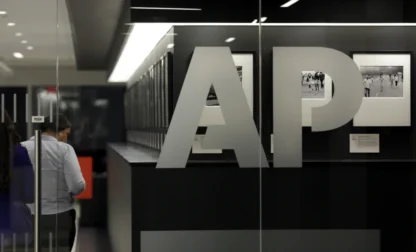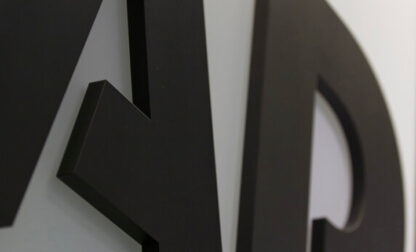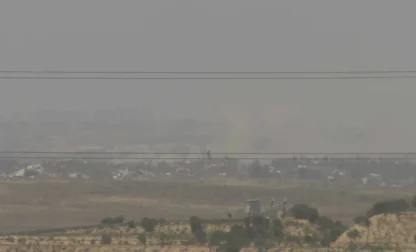LONDON (AP) — The British Supreme Court has decided partially in favor of news-clipping service Meltwater in its long-running dispute with UK newspaper publishers, who accused Meltwater of distributing excerpts of stories online without paying any licensing fees.
The country’s highest court ruled Wednesday that Meltwater’s customers and anyone else in the UK cannot be prosecuted for viewing news stories online. But the court confirmed that Meltwater and its customers must obtain licenses from the newspaper publishers.
The ruling stems from a dispute between Meltwater and the UK’s Newspaper Licensing Agency, which represents newspaper publishers. Meltwater provides its customers — mostly public relations firms wanting to track news about their clients — reports that contain hyperlinks, the opening paragraphs of articles and other excerpts via email or its website.
The dispute centered on whether Meltwater’s customers were guilty of copyright infringement when they viewed articles online without the explicit consent of the newspapers that provided the original content.
The UK’s High Court and Court of Appeals had previously ruled in favor of the Newspaper Licensing Agency. But the Supreme Court overturned those rulings.
“It has never been an infringement of EU or English law to view or read an infringing article in physical form,” the court said in its official summary. “Making mere viewing, rather than downloading or printing, the material an infringement could make infringers of millions of ordinary internet users across the EU.”
Because copyright issues concerning Web browsing are so important and have international implications, the Supreme Court referred its judgment to the European Union’s Court of Justice, which has the authority to uphold the UK decision across all 27 countries in the EU.
“We are very pleased that the Supreme Court overruled the previous rulings of the Court of Appeals and the High Court that the simple act of browsing the Internet could be copyright infringement,” Jorn Lyseggen, chief executive of Meltwater, said in a statement.
“This ruling is an important step in modernizing the interpretation of UK copyright law and protects UK Internet users from overreaching copyright collectors,” he said.
Andrew Hughes, the Newspaper Licensing Agency’s commercial director, said the group was disappointed with the decision, which Hughes said might nudge newspapers to put more material behind paywalls.
“We think news is valuable,” he said. “We think people who commercially exploit news should pay.”
In the United States, a federal judge recently concluded that Meltwater U.S. Holdings Inc. and its Meltwater News Service essentially resold excerpts of stories from The Associated Press. U.S. District Judge Denise Cote in New York ruled against Meltwater’s claims that its use of Web stories drawn from a scan of 162,000 news websites from more than 190 countries was a fair use of copyright-protected material.
Meltwater was founded in 2001 in Oslo, Norway. According to the company’s website, it has more than 800 employees working in 55 offices around the world.


